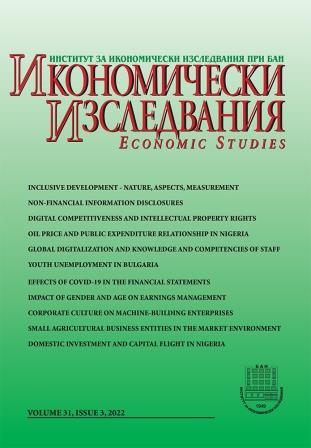Oil Price and Public Expenditure Relationship in Nigeria: Does the Level of Corruption Matter?
Oil Price and Public Expenditure Relationship in Nigeria: Does the Level of Corruption Matter?
Author(s): Nurudeen Abu, Joseph David, Musa Abdullahi Sakanko, Ben-Obi Onyewuchi AmaechiSubject(s): Economy, Public Finances
Published by: Институт за икономически изследвания при Българска академия на науките
Keywords: oil price; public expenditure; corruption; NARDL; Nigeria
Summary/Abstract: We employ the non-linear autoregressive distributed lag (NARDL) approach to examine if the oil price and public expenditure relationship are dependent on the level of corruption using Nigeria’s quarterly data during the 1996-2019 period. The result of the NARDL-bounds test to co-integration demonstrates that there is a long-run relationship between the variables, and we found evidence of long-run asymmetry in this relationship. The estimation results indicate that both positive and negative shocks to oil price have a significant positive effect on public expenditure in the long run, and the impact of oil price on public expenditure depends on the level of corruption. In addition, the marginal effect of oil price on public expenditure varies at different levels of corruption. Other important factors that drive public expenditure in Nigeria, in the long run, include spending on internal security and debt service. Based on these outcomes, we proffer some policy recommendations.
Journal: Икономически изследвания
- Issue Year: 2022
- Issue No: 3
- Page Range: 59-80
- Page Count: 22
- Language: English

